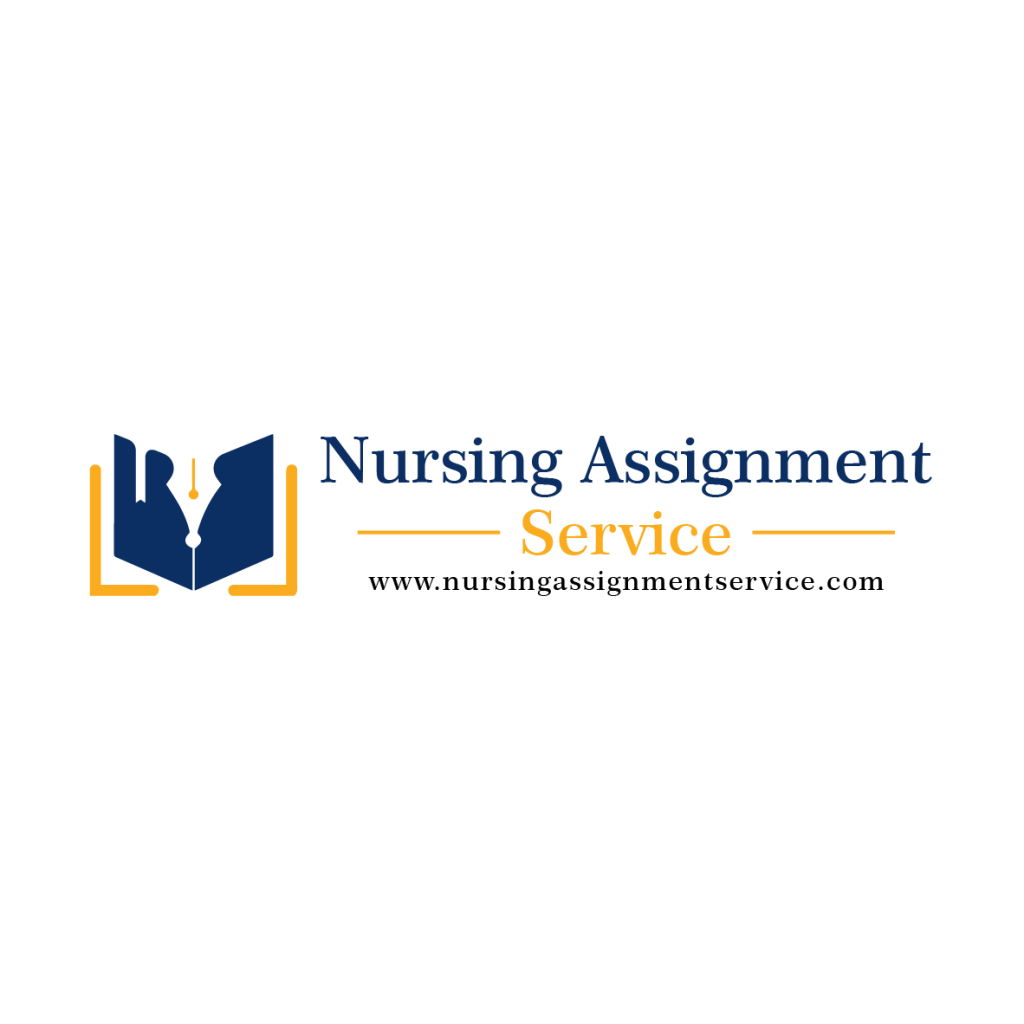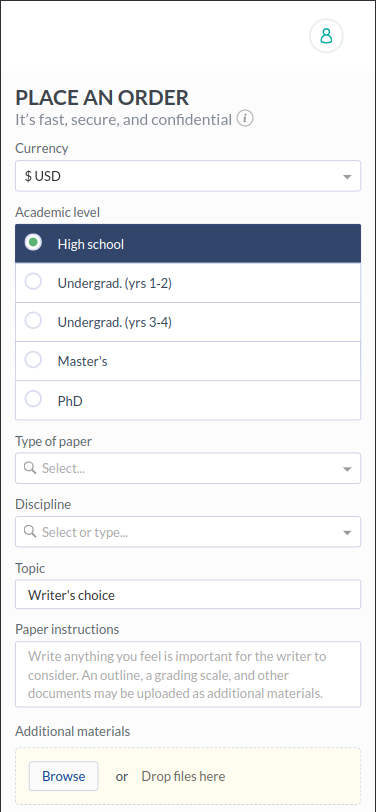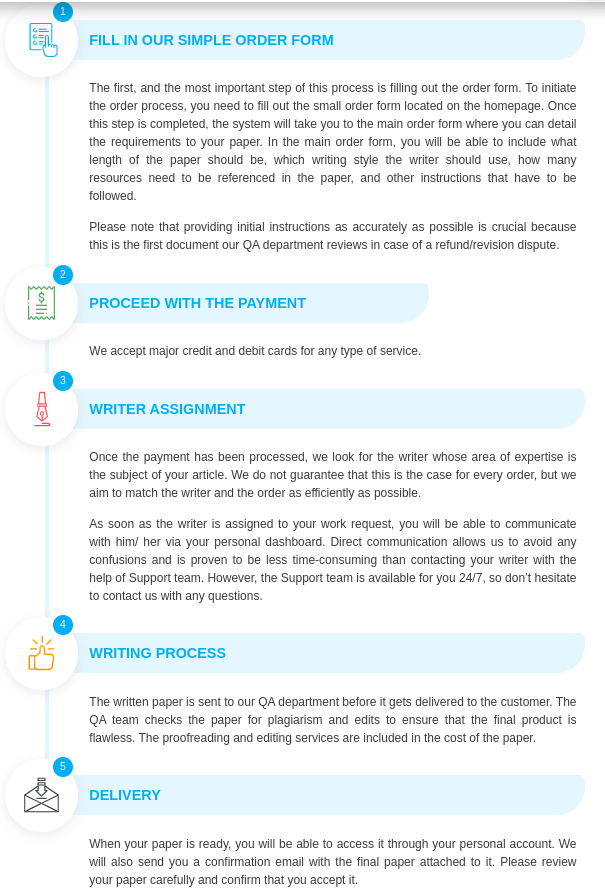INSTRUCTIONS
- Timed Test : This test has a time limit of 2 hours and 30 minutes.
- Timer Setting: This test will save and submit automatically when the time expires.
- Force Completion: This test can be saved and resumed at any point until time has expired. The timer will continue to run if you leave the test.
- Due Date: This Test is due on July 11, 1:59:00 AM EDT.
Question 1
Select the prognosis range of untreated PTSD patients.
A. | 10% recover, 20% mild symptoms, 30% moderate symptoms, 40% no change or worse | |
B. | 20% recover, 10% mild symptoms, 40% moderate symptoms, 30% no change or worse | |
C. | 30% recover, 40% mild symptoms, 20% moderate symptoms, 10% no change or worse | |
D. | 40% recover, 30% mild symptoms, 10% moderate symptoms, 20% no change or worse |
Question 2
Select two events that are causes of dissociative trance disorder.
A. | Natural disaster | |
B. | Substance abuse | |
C. | Experienced violence | |
D. | Appropriate drug therapy |
Question 3
Select the life stage at which emotional and social behavior begin.
A. | Toddler | |
B. | Infancy | |
C. | Middle years | |
D. | Preschool |
Question 4
Select the antidepressant drug that is effective in treating OCD, because it is the most selective in preventing serotonin uptake.
A. | Clomipramine | |
B. | Valproate | |
C. | Lithium | |
D. | Venlafaxine |
Question 5
Select the two rating scales used specifically for schizophrenia.
A. | PANSS | |
B. | MMSE | |
C. | SAPS | |
D. | BPRS |
Question 6
Select the event most associated with the occurrence of dissociative fugue.
A. | Head trauma | |
B. | Substance abuse | |
C. | Partner betrayal | |
D. | Unplanned travel |
Question 7
Select the age group in which adjustment disorders occur most frequently.
A. | Childhood | |
B. | Middle adult | |
C. | Young adult | |
D. | Adolescent |
Question 8
Select the preferred treatment for bulimia nervosa.
A. | Cognitive-behavior therapy (CBT) | |
B. | SNRI antidepressants | |
C. | Monoamine oxidase inhibitors (MAOIs) | |
D. | Dynamic psychotherapy |
Question 9
Select the antidepressant drug most likely to cause sexual dysfunction.
A. | Sertraline | |
B. | Amitriptyline | |
C. | Duloxetine | |
D. | Clomipramine |
Question 10
Select the mental health disorder that commonly coexists with generalized anxiety disorder.
A. | Bipolar I | |
B. | Alzheimer’s disease | |
C. | Major depression | |
D. | Schizophrenia |
Question 11
Select the characteristic in long sleepers (more than 9 hours) that is absent in short sleepers (less than 6 hours).
A. | Mildly depressed | |
B. | Ambitious | |
C. | Socially adept | |
D. | Efficient |
Question 12
Select the psychiatric disorder that occurs most commonly in patients hospitalized for medical problems and surgery.
A. | Depression | |
B. | Adjustment | |
C. | Bipolar | |
D. | Anxiety |
Question 13
Select the symptom that is most likely improve early in the drug treatment of major depression.
A. | Poor concentration | |
B. | Sleep problems | |
C. | Excessive guilt | |
D. | Decreased appetite |
Question 14
Select the sleep disorder in which cataplexy is a common symptom.
A. | Central apnea | |
B. | Somnambulence | |
C. | Insomnia | |
D. | Narcolepsy |
Question 15
Select the neurotransmitter involved in obsessive-compulsive disorder (OCD) in children and adolescents based on the common comorbidity of tic disorders.
A. | Norepinephrine | |
B. | GABA | |
C. | Dopamine | |
D. | Acetylcholine |
Question 16
Select the age stage of life in which identity crisis typically emerges.
A. | Childhood | |
B. | Adolescence | |
C. | Middle adult | |
D. | Elderly adult |
Question 17
Select the type of dissociative amnesia described by patient’s inability to recall any information about her or his family.
A. | Selective | |
B. | Localized | |
C. | Continuous | |
D. | Systematized |
Question 18
The following psychopharmacology agent is NOT a recommended in the treatment of PTSD:
A. | Sertraline | |
B. | Paroxetine | |
C. | Valproate | |
D. | Alprazolam |
Question 19
Select the DSM-5-TR disorder formerly called multiple personality disorder.
A. | Depersonalization | |
B. | Dissociative fugue | |
C. | Dissociative identity | |
D. | Derealization |
Question 20
Select the patient evaluation scale to be used before and during prescribing antipsychotic drugs.
A. | MMSE | |
B. | AIMS | |
C. | CAGE | |
D. | HAM-D |
More NRNP 6635 Week 6 Exam Questions
Question 21
Children with a first-degree relative diagnosed with major depression are three times more likely to develop the disorder than those children without a family history of depression.
A. | True | |
B. | False | |
C. | Neither | |
D. | I don’t know |
Question 22
Behavioral theories hypothesize anxiety is:
A. | A conditioned response to a specific environmental stimulus | |
B. | The person’s feelings of living in a purposeless universe | |
C. | The result of psychic conflict between ID and EGO | |
D. | A result of an unconscious memory |
Question 23
Select the theorist who is credited with establishing the area of psychosomatic medicine.
A. | Freud | |
B. | Abraham | |
C. | Groddeck | |
D. | Ferenczi |
Question 24
Select the rating scale used to assess significant alcohol problem.
A. | BPRS | |
B. | CAGE | |
C. | YBOCS | |
D. | CAPS |
Question 25
Select the drug used to treat bipolar disorder that may cause Stevens-Johnson syndrome.
A. | Carbamazepine | |
B. | Risperidone | |
C. | Lamotrigine | |
D. | Valproate |
Question 26
Select two signs and symptoms of bulimia nervosa.
A. | Weekly binge eating for at least three months | |
B. | Abuse of emetic drugs and substances | |
C. | Greater weight loss than with anorexia nervosa | |
D. | Binge eating and purging is most common in winter |
Question 27
Select the exposure to violence that is excluded as a DSM-5-TR diagnostic criterion for PTSD in children and adolescents.
A. | Electronic media | |
B. | Directly witnessed | |
C. | Report of family member | |
D. | Repeated natural disaster |
Question 28
Select the anxiety disorder that emerges in ages 9 to 18 months.
A. | Separation | |
B. | Generalized | |
C. | Social | |
D. | Traumatic |
Question 29
Select age after which encopresis may be correctly diagnosed.
A. | 2 | |
B. | 3 | |
C. | 4 | |
D. | 6 |
Question 30
Select the antidepressant drug that is most likely to cause death when taken in an overdose.
A. | Fluoxetine | |
B. | Mirtazapine | |
C. | Imipramine | |
D. | Trazodone |
Question 31
Select the antidepressant drug that inhibits reuptake of both norepinephrine and serotonin (5-HT).
A. | Fluoxetine | |
B. | Desipramine | |
C. | Venlafaxine | |
D. | Bupropion |
Question 32
Select the mood disorder that frequently coexists in children and adolescents with ADHD.
A. | Disruptive mood dysregulation disorder | |
B. | Major depression | |
C. | Dysthymia | |
D. | Panic Disorder |
Question 33
Select the two comorbid disorders with which Pica occurs most commonly.
A. | Enuresis | |
B. | Encopresis | |
C. | Autism | |
D. | Intellectual disability |
Question 34
The following psychotherapy interventions is NOT a recommended in the treatment of PTSD:
A. | Behavioral Therapy | |
B. | Chelation Therapy | |
C. | Cognitive Therapy | |
D. | Hypnosis |
Question 35
Select two imaging methods used to study anxiety disorders.
A. | CT | |
B. | TMS | |
C. | MRI | |
D. | EKG |
Question 36
Select the two methods to treat dissociative amnesia.
A. | Antipsychotic drugs | |
B. | Cognitive therapy | |
C. | Hypnosis | |
D. | Psychoanalysis |
Question 37
Select the population in which rumination disorder occurs most frequently.
A. | Male infants aged 3 to 12 months | |
B. | Female infants 6 to 18 months | |
C. | Children aged 2 to 5 years | |
D. | Adolescents aged 13 to 15 years |
Question 38
Select the drug proven most effective in treating PTSD.
A. | Buspirone | |
B. | Paroxetine | |
C. | Trazodone | |
D. | Clonidine |
Question 39
Select the short rating scale used to assess change in psychiatric inpatients.
A. | PANSS | |
B. | BPRS | |
C. | HAM-D | |
D. | CAPS |
Question 40
Select the factor that is required to cause PTSD from a stressor.
A. | Intense fear | |
B. | Non-shared experience | |
C. | Concurrent substance abuse | |
D. | Survivor’s guilt |
More NRNP 6635 Week 6 Exam Questions
Question 41
Select the disorder in which patients feel detached from their environment.
A. | Derealization | |
B. | Transient global amnesia | |
C. | Depersonalization | |
D. | Dissociative identity |
Question 42
Select the two most important elements of the psychiatric interview to establish a mental illness diagnosis.
A. | Psychiatric history | |
B. | Family history | |
C. | Mental status examination | |
D. | Review of systems |
Question 43
Select the two diagnostic criteria of somatic symptom disorder or hypochondriasis.
A. | Persistence for at least 6 months | |
B. | Presence of suicidal ideation | |
C. | Lack of medical evidence | |
D. | Co-occurrence of substance abuse |
Question 44
Select the primary cause of reactive attachment disorder in children.
A. | Death of mother | |
B. | Bullying by peers | |
C. | Negligent parenting | |
D. | Fetal alcohol syndrome |
Question 45
Select two brain regions that are associated with anxiety disorders.
A. | Substantia nigra | |
B. | Locus ceruleus | |
C. | Temporal lobe | |
D. | Raphe nuclei |
Question 46
What does a black-box warning from the FDA indicate for prescribers?
A. | To not prescribe the medication to the population of consideration | |
B. | To obtain informed consent from patients | |
C. | To document adverse reactions | |
D. | The need for closer monitoring of potential symptoms by the provider |
Question 47
Select the two most commonly co-occurring anxiety disorders that may present with generalized anxiety disorder.
A. | PTSD | |
B. | Dissociative disorder | |
C. | OCD | |
D. | Delusional disorder |
Question 48
Select the most influential source of bias in a mental status examination.
A. | Culture | |
B. | Genetics | |
C. | Environment | |
D. | Age |
Question 49
Select the drug in addition to a benzodiazepine used to treat generalized anxiety disorder.
A. | Buspirone | |
B. | Trazodone | |
C. | Quetiapine | |
D. | Lamotrigine |
Question 50
Select the criteria in DSM-5-TR to diagnose a child with major depressive disorder.
A. | At least three symptoms including suicidal thoughts for three weeks | |
B. | At least five symptoms including violence toward others for three weeks | |
C. | At least three symptoms excluding substance abuse for two weeks | |
D. | At least five symptoms including irritable mood for two weeks |
Question 51
Select the comorbid disorder most frequently associated with anorexia nervosa.
A. | Depression | |
B. | Anxiety | |
C. | Schizophrenia | |
D. | Substance use disorder |
Question 52
Select the self-report rating scale used to screen for major depression.
A. | BDI | |
B. | HAM-D | |
C. | BPRS | |
D. | SANS |
Question 53
Select the drug with the most rapid onset of action to treat acute mania.
A. | Lithium | |
B. | Clonazepam | |
C. | Lamotrigine | |
D. | Valproate |
Question 54
Select the youngest age range at which alarm therapy is effective to treat enuresis.
A. | 11 to 12 | |
B. | 9 to 10 | |
C. | 6 to 7 | |
D. | 5 to 6 |
Question 55
Select the drug that has been effective in treating social anxiety in children.
A. | Bupropion | |
B. | Carbamazepine | |
C. | Amitriptyline | |
D. | Fluoxetine |
Question 56
What is one main difference between acute stress disorder and PTSD?
A. | PTSD diagnosis require symptoms to last at least for one month. | |
B. | Acute stress disorder symptoms can last at least for one month. | |
C. | PTSD has recurrent, distressing dreams. | |
D. | Acute stress disorder has recurrent, distressing dreams. |
Question 57
Select the mood disorder in which diagnosis requires symptoms present for at least two years.
A. | Major depression | |
B. | Dysthymia | |
C. | Bipolar II | |
D. | Cyclothymia |
Question 58
Select the neurodevelopmental disorder typically diagnosed in childhood.
A. | Bipolar I | |
B. | Major depression | |
C. | Intellect | |
D. | Agoraphobia |
Question 59
Which side effect of venlafaxine places the medication as a second-line choice when compared with SSRIs?
A. | Nausea | |
B. | Increased blood pressure | |
C. | Headache | |
D. | Fatigue |
Question 60
All the following are key psychiatric findings when assessing speech and language in children EXCEPT:
A. | Normal articulation | |
B. | Unusual syntax | |
C. | Echolalia | |
D. | Repetitive stereotypical phrases |
Question 61
Select the therapeutic plasma concentration range for lithium in mEq/L.
A. | 0.1-0.5 | |
B. | 0.6-1.2 | |
C. | 1.4-1.9 | |
D. | 2.0-2.6 |
Question 62
Select the most exclusive feature rapid eye movement (REM) sleep.
A. | Bradycardia | |
B. | Relaxation of skeletal muscles | |
C. | Dreaming | |
D. | Tachypnea |
Question 63
Episodes of major depression and hypomania are the main characteristics of:
A. | Dysthymia | |
B. | Bipolar I Disorder | |
C. | Mixed Mood Disorder | |
D. | Bipolar II Disorder |
Question 64
Factors that indicate a good prognosis for PTSD disorders include all the following EXCEPT:
A. | rapid onset of symptoms | |
B. | short duration of symptoms | |
C. | positive response to benzodiazepines | |
D. | strong social supports |
Question 65
The most common clinical mistake leading to an ineffective antidepressant drug trial is:
A. | Discontinuation due to adverse events | |
B. | The initial antidepressant drug selection | |
C. | Use of too low of dosage of the antidepressant for too short a time | |
D. | Not assessing for substance use |
Question 66
Select the two diverse symptoms of OCD.
A. | Rituals | |
B. | Flashbacks | |
C. | Loose associations | |
D. | Intrusive thoughts |
Question 67
Anatomical and functional neuroimaging studies have associated a decreased activation in what part of the brain with obsessive-compulsive behaviors?
A. | Bodmann’s area | |
B. | Substantia nigra | |
C. | Caudate | |
D. | Wernicke’s area |
Question 68
Select the two characteristics of impulses that are usually absent from compulsions.
A. | Pleasure seeking | |
B. | Psychosocial impairment | |
C. | Committing actions | |
D. | Repetitive performance |
Question 69
Select the percentage range of correlation between obesity and psychiatric disorders.
A. | 10 to 20 | |
B. | 20 to 30 | |
C. | 40 to 60 | |
D. | 50 to 70 |
Question 70
Select the rating scale used to assess children and adolescents for ADHD.
A. | Connors | |
B. | CBCL | |
C. | Achenbach | |
D. | DISC |
Question 71
Select the mood disorder that is worsened by chronic exposure to observing violence in television, movies, and video games.
A. | Bipolar | |
B. | Oppositional | |
C. | Conduct | |
D. | Dysthymia |
Question 72
Select the serum assessment that is required when prescribing drugs to treat psychiatric disorders in psychosomatic patients.
A. | Potassium | |
B. | White blood cells | |
C. | Liver enzymes | |
D. | Blood urea nitrogen |
Question 73
Select the nondrug therapy with the greatest evidence of effectiveness in treating major depressive disorder.
A. | Family | |
B. | Psychoanalytic | |
C. | Cognitive | |
D. | Behavior |
Question 74
Select the disorder in which inflicting injury to self or others is common.
A. | Pain | |
B. | Conversion | |
C. | Somatic symptom | |
D. | Factitious |
Question 75
Select the factor that is required to cause PTSD from a stressor.
A. | Intense horror | |
B. | Isolated experience | |
C. | Concurrent substance abuse | |
D. | Survivor’s guilt |
Question 76
Select the minimum treatment time to assess the effectiveness of antidepressant drug therapy.
A. | 1-2 weeks | |
B. | 3-4 weeks | |
C. | 6-8 weeks | |
D. | 10-14 weeks |
Question 77
Select the most common sleep disorder.
A. | Parasomnia | |
B. | Hypersomnia | |
C. | Insomnia | |
D. | Apnea |
Question 78
What is the primary goal of data collection during the psychiatric interview?
A. | To obtain the family’s perception of the patient’s health and illness | |
B. | To explain the provider’s perception of the patient’s health and illness | |
C. | To obtain the patient’s perception of their health and illness | |
D. | To obtain statistics regarding the patient’s health and illness |
Question 79
Select the disorder in children and adolescents that is described by depressed or irritable mood for most of the day for a majority of days in at least one year.
A. | Major depression | |
B. | Cyclothymia | |
C. | Bereavement | |
D. | Persistent depression |
Question 80
Select the therapy that is as effective as appropriate drugs to treat OCD.
A. | Psychotherapy | |
B. | Behavior | |
C. | Family | |
D. | Group |
Question 81
Select the neurotransmitter that is most involved in the pathophysiology of schizophrenia.
A. | Norepinephrine | |
B. | Dopamine | |
C. | Serotonin | |
D. | Acetylcholine |
Question 82
Select the best antidepressant alternative to fluoxetine to treat a patient suffering loss of sleep, appetite and weight for the past three months.
A. | Mirtazapine | |
B. | Citalopram | |
C. | Duloxetine | |
D. | Bupropion |
Question 83
Select a provider’s most important knowledge area essential to a successful mental health interview of a child.
A. | Normal development | |
B. | Cultural background | |
C. | Sibling position | |
D. | Medical history |
Question 84
Select the two primary psychometric properties of psychiatric rating scales.
A. | Reproducibility | |
B. | Reliability | |
C. | Validity | |
D. | Variability |
Question 85
Select the rating scale used to assess obsessive-compulsive disorder.
A. | HAM-A | |
B. | CAGE | |
C. | YBOCS | |
D. | CAPS |
Question 86
Select the obsessive-compulsive disorder for which a patient is likely to initially seek help from a Primary Care Provider.
A. | Hoarding | |
B. | Excoriation | |
C. | Hair-pulling | |
D. | Body dysmorphia |
Question 87
Select the neurotransmitter dysregulation that is most directly involved with OCD.
A. | Dopamine | |
B. | Norepinephrine | |
C. | Serotonin | |
D. | GABA |
Question 88
Select the most common stressor of PTSD in women.
A. | Home accident | |
B. | Partner or spousal abuse | |
C. | Sexual assault | |
D. | Natural disaster |
Question 89
Differential diagnosis for consideration when suspecting a cyclothymic disorder include:
A. | Seizures | |
B. | Substance abuse | |
C. | Narcissistic Personality Disorder | |
D. | All of the above |
Question 90
Select the nondrug therapy approved for use in patients who have failed to achieve satisfactory improvement with correctly prescribed antidepressant drugs.
A. | Transcranial magnetic stimulation | |
B. | Phototherapy | |
C. | Vagal nerve stimulation | |
D. | Psychoanalysis |
Question 91
Select the most common stressor of PTSD in young men.
A. | Home accident | |
B. | Partner or spousal abuse | |
C. | Military combat | |
D. | Natural disaster |
Question 92
Select the disorder in which concurrent substance abuse occurs in 5% to 10% of patients.
A. | Bipolar I | |
B. | Bipolar II | |
C. | Major depression | |
D. | Cyclothymia |
Question 93
Select two events that are excluded as causes of dissociative trance disorder.
A. | Natural disaster | |
B. | Substance abuse | |
C. | Experienced violence | |
D. | Appropriate drug therapy |
Question 94
Differential diagnoses for consideration when suspecting a agoraphobia disorder include all the following EXCEPT:
A. | Dependent personality disorder | |
B. | Obsessive-Compulsive disorder | |
C. | Schizophrenia | |
D. | Paranoid personality disorder |
Question 95
Fetal alcohol syndrome is characterized by all the following EXCEPT:
A. | Microcephaly | |
B. | Midface hypoplasia | |
C. | Growth retardation with weight/height | |
D. | Scanty Lanugo |
Question 96
Select the comorbidity most commonly occurring with intermittent explosive disorder.
A. | Narcissism | |
B. | Pyromania | |
C. | Depersonalization | |
D. | Kleptomania |
Question 97
Select the theorist who developed psychoanalysis.
A. | Maslow | |
B. | Skinner | |
C. | Erikson | |
D. | Freud |
Question 98
Select the two types of symptom patterns common to OCD patients.
A. | Recurrent nightmares | |
B. | Flight of ideas | |
C. | Intrusive thoughts | |
D. | Contamination |
Question 100
Select the disorder in which children are irritable and display temper outbursts, but are not likely to cause physical harm to themselves and others.
A. | Oppositional | |
B. | Conduct | |
C. | Dysregulation | |
D. | Bipolar |
Our team of expert nursing writers at Nursing Assignment Service has NRNP 6635 Week 6 Exam answers ready for you, place your order here.




